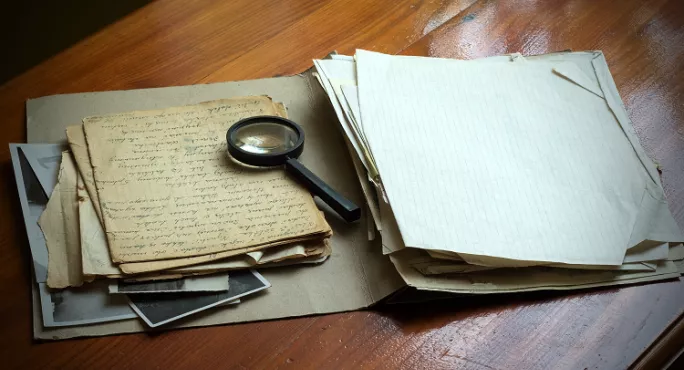
- Home
- Teaching & Learning
- Primary
- How to teach primary history: 8 Ofsted findings
How to teach primary history: 8 Ofsted findings

Ofsted has set out what it believes to be the best and least effective approaches to teaching primary school history, following a series of targeted inspections of “outstanding” schools.
The watchdog has produced findings from a series of subject inspections focused on the quality of history teaching in primary schools.
These were carried out over three months before the Covid pandemic at 24 primaries rated as “outstanding”.
Exclusive: Ofsted hiring subject experts to improve inspections
Revealed: Inspectors’ favourite subjects for a ‘deep dive’
Analysis: How will Ofsted treat primary subject leaders
The findings are set out in a blog by Tim Jenner, the watchdog’s subject lead for history.
Ofsted guidance for teaching history in primary schools
According to Ofsted, schools should:
1. Build up pupils’ subject knowledge
The watchdog said it found “excellent examples of schools that had carefully considered the building blocks of progress in history”.
It said these schools had identified knowledge that was essential to pupils’ understanding of new material in the subject.
It gives the examples of schools that built up pupils’ knowledge of key concepts, such as empire, tax, trade and invasion.
Mr Jenner adds: “They are crucial components of pupils’ comprehension of new material because they are abstract ideas, and therefore difficult to grasp, but are also used very commonly in history.”
2. Use challenging vocabulary and test what pupils know
Inspectors were impressed by the range and security of pupils’ knowledge of some of these concepts in some of the primary schools they visited.
Mr Jenner’s blog says schools secured this knowledge by using appropriately challenging vocabulary in lessons, and by explicitly teaching these concepts.
3. Equip pupils with a ‘mental timeline’ of the past
Ofsted said that in some schools it was also impressed by pupils’ chronological knowledge.
Mr Jenner’s blog adds: “This is pupils’ knowledge of broad developments and historical periods, and their ‘mental timeline’ of the past. This knowledge supports pupils to place their learning in context both in history and across other subjects.
“In a number of schools, this knowledge was regularly revisited and assessed, and pupils were securing historical knowledge as coherent narratives.”
He says inspectors were pleased to hear pupils confidently discussing broader developments across the periods they had studied.
4. Ensure that pupils with SEND are supported
The new findings from the inspectorate show that, across the 24 schools that were inspected, supporting pupils with special educational needs or disabilities was a strength.
Mr Jenner says: “All of these schools balanced their ambition for all pupils to access the full history curriculum with a clear understanding of the needs of their pupils.
“Pupils were given careful individual and/or group support to secure the knowledge they needed to continue to access content in history.”
Criticism
However, Ofsted also criticised the way that some schools approached history teaching.
There were four main ways in which schools fell down in the eyes of inspectors:
1. Failing to identify the knowledge that is most important for pupils to learn
The watchdog found that pupil knowledge was less secure in those schools where leaders and teachers “had not identified the knowledge that was most important for pupils to learn and remember”.
The blog adds: “Often, these schools did not assess pupils’ knowledge of the history content they had learned and therefore were not able to ensure that all pupils were making progress in their knowledge of history.”
2. Pupils did not know enough about how historians study the past
The inspectorate said it found “generally weaker practice” in the teaching of disciplinary knowledge.
It added: “This is knowledge of how historians study the past and construct accounts. In most schools, pupils’ knowledge in this area was not secure. We saw a lot of teaching that encouraged misconceptions about the discipline of history.”
3. Children were asked to interpret historical events without the knowledge to do so
The Ofsted blog says it also found examples where pupils were encouraged to “come up with their own interpretations about the past without enough knowledge to do so successfully”.
The inspectorate said this was happening rather than pupils learning about how and why historians construct different interpretations of the past.
4. Pupils were set tasks that did not help them to secure knowledge
Ofsted said that inspectors saw some lesson activities that were not well-designed to secure pupils’ knowledge.
The blog adds: “These included anachronistic writing tasks, such as writing a newspaper report on the Viking invasions of England, and activities that distracted from the history content pupils needed to learn.”
You need a Tes subscription to read this article
Subscribe now to read this article and get other subscriber-only content:
- Unlimited access to all Tes magazine content
- Exclusive subscriber-only stories
- Award-winning email newsletters
- Unlimited access to all Tes magazine content
- Exclusive subscriber-only stories
- Award-winning email newsletters
You need a subscription to read this article
Subscribe now to read this article and get other subscriber-only content, including:
- Unlimited access to all Tes magazine content
- Exclusive subscriber-only stories
- Award-winning email newsletters
- Unlimited access to all Tes magazine content
- Exclusive subscriber-only stories
- Award-winning email newsletters
topics in this article



